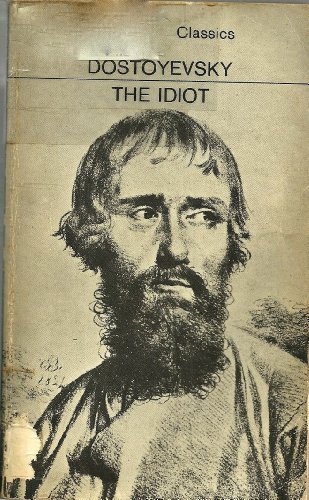The Idiot
Fyodor Dostoyevsky
BOOK REVIEW

In a world where moral complexity is often drowned by the clamor of modernity, The Idiot emerges as a haunting whisper from the depths of human consciousness, beckoning you to confront the raw and unfiltered essence of emotion and vulnerability. Fyodor Dostoyevsky painted his literary masterpiece with the colors of despair, hope, and relentless questioning while threading a narrative so rich, you find yourself lost within its layers, unable to resist its magnetic pull.
At the heart of this profound exploration lies Prince Myshkin, a character who embodies the characteristics of a Christ-like figure-naïve, compassionate, and painfully honest. As you traverse the streets of 19th-century St. Petersburg alongside him, the city pulses with an electric energy that mirrors the turmoil in its inhabitants' hearts. Myshkin's arrival disrupts the lives of those around him, igniting both admiration and disdain, a paradox that resonates deeply with the reader. Are we not all, at times, drawn to innocence while simultaneously recoiling from its uncomfortable truths?
Dostoyevsky, grappling with his own demons-epilepsy, financial troubles, and the haunting specter of mortality-crafted The Idiot as a response to a society increasingly shrouded in materialism and moral decay. As you dive into the pages, you'll encounter a tapestry woven with intricate social commentary and psychological insight that will leave you questioning the very foundations of your own beliefs. The European philosophical movements of that era, particularly existentialism and nihilism, swirl through the narrative, presenting a profound inquiry into the meaning of life and the essence of goodness amidst suffering.
Readers have often praised The Idiot for its emotional depth while simultaneously criticizing its slower pacing, which some argue detracts from the action. Yet, it is essential to recognize that the tempo mirrors the internal struggles of the characters, urging you to take a step back and reflect on your perceptions of sanity and madness. Critics have pointed out that Myshkin's purity often feels like a burden to those around him, as his honesty lays bare their own moral contradictions, a mirror reflecting shadows they'd prefer to ignore.
As you plunge deeper into the chaotic interpersonal relationships that define this literary world, you might feel an irresistible connection to the questions they grapple with. The duplicitous nature of human emotions-a theme prevalent in Dostoyevsky's works-comes to life in the tensions between Myshkin, Rogozhin, and Nastasya Filippovna. The raw, palpable love and jealousy ignite a whirlwind of tragedy that is both intensely relatable and horrifying. Can you escape watching the descent into madness when the soul is confronted with the abyss of desire?
Beyond mere plot mechanics, The Idiot forces a visceral reckoning with our conceptions of normalcy and insanity. From the depths of tears to the heights of joy, Dostoyevsky compels you to confront discomfort head-on, not shying away from the darker elements of existence. "Beauty will save the world," insists Myshkin, and yet, as you ponder this statement, you must grapple with the stark reality that beauty is often just as intertwined with chaos and destruction.
The contemporary resonance of The Idiot does not falter, as its themes of alienation and societal critique have reverberated through generations of thinkers, artists, and writers-one can see traces of its influence in figures from Virginia Woolf to the existential musings of Jean-Paul Sartre. It crystallizes a truth that transcends time: our humanity is inherently flawed, yet within that imperfection lies a profound beauty.
Perhaps it is this evocative interplay of beauty and despair that drives readers to fervently praise The Idiot. However, there are also those who tread cautiously, arguing that its complexity makes it a challenging read, a labyrinth with no clear exit. Yet, isn't it precisely within those knots of difficulty that the most profound revelations often lie?
In reflecting on Dostoyevsky's twisted genius, you may find yourself changed-awakened by fierce conversations about morality, empathy, and love. The Idiot is more than a mere story; it is a challenge, a call to disentangle the fibers of your own soul while daring to confront the shadows lurking just beyond the light of societal expectations. With every page, prepare for a psychological and emotional journey that forces you to grapple with questions that are as old as humanity itself, yet as crucial as the breath in your lungs.
Dive in, allow the introspection to wash over you, and discover why The Idiot is not merely a title; it is an invitation-a chance to reclaim your understanding of what it truly means to be human. 🌌
📖 The Idiot
✍ by Fyodor Dostoyevsky
🧾 624 pages
1956
#idiot #fyodor #dostoyevsky #FyodorDostoyevsky